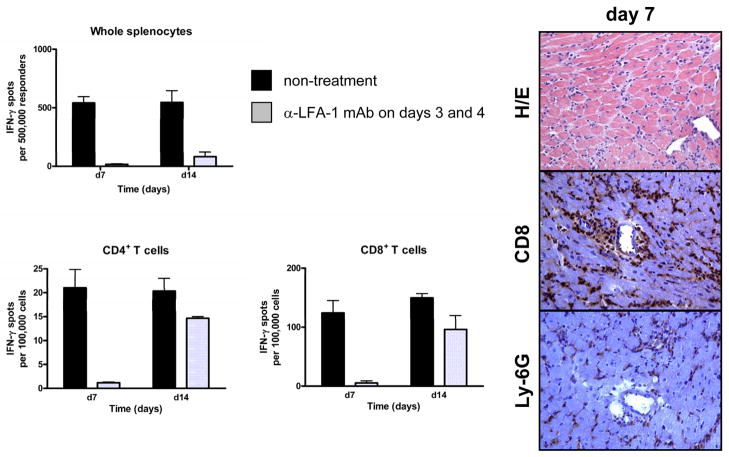Figure 6. Treatment with anti-LFA-1 mAb on days 3 and 4 post-transplant inhibits donor-reactive CD8+ and CD4+ T cell development to IFN-γ producing cells.
C57BL/6 mice were treated with or without 200 μg anti-LFA-1 mAb on days 3 and 4 and then received complete MHC mismatched A/J cardiac allografts on day 0. (A) On days 7 and 14 post-transplant, aliquots of unseparated spleen cells, enriched CD4+ or enriched CD8+ T cells from the recipients were cultured overnight with syngeneic or donor stimulator cells on anti-IFN-γ mAb coated filters. Numbers of donor-reactive T cells producing IFN-γ were determined by ELISPOT. Numbers of spots in co-cultures with syngeneic stimulators were always < 3 spots/5 × 105 stimulator cells. The data shown are representative of two independent experiments. (B) On day 7 post-transplant cardiac allografts were harvested from recipients treated with anti-LFA-1 mAb on days 3 and 4 and prepared sections were stained with hematoxylin-eosin or with CD8-specific antibodies for immunohistochemical analyses. Sections shown are representative of 3–4 grafts analyzed in each group. Magnification, 200x.

